Mercury Falling
Over the last year, we've watched Ford officials desperately plugging the fruits of their 'reinvigorated' Mercury brand. The Blue Oval's trumpeted reinvestment into the fallen badge can be summed-up thusly: more reheated Fords in shinier tins. The main difference from previous attempts to keep the former purveyor of flatheads from flat-lining lies in Ford's willingness to tarnish old monikers like Monterey, Montego and Marauder to sell a few extra units. What's old is new again, and vice-versa.
Journalists attending a Mercury press event these days must muffle their guffaws while Elena Ford's minions wax euphoric about 'rebirth' and 'DNA', only to pull the sheet on, say, the Mariner, a Ford Escape that emerged from fashion school with a skosh more chrome and an analog dashboard clock. This latest Mercury may in fact be a competent little SUV; the Escape from which it spins isn't at all bad. But most of the Mariner's salient points are available on the cheaper bread-and-butter Escape. So why bother?
Mercury suffers from a half-baked brand strategy, based solely on the notion that consumers are dim enough to fork over a sizeable premium for a handful of embellishments to a "less prestigious" product. The product philosophy amounts to little more than garnish on what a cynical baker might refer to as Ford's 'day olds.' This folly is illustrated throughout Mercury's product lineup, from the underwhelming Monterey minivan (a Freestar biscuit with a daub of marmalade) to the Marauder, a sinister-appearing but gutless Jurassic holdover with a drivetrain that couldn't see off a Honda Accord.
It's impossible not to conclude that the Ford subsidiary is falling prey to the same delusional behavior that deep-sixed the Mercury marque's [modest] value in the first place. The attempt seems particularly misguided considering the fact that the Mercury badge has no clout whatsoever. Simply put, buyers are having none of it.
As of July 1st, Dearborn reports that its inventory on the less-than-stunning Mercury Monterey sits (and sits and sits) at 174 days. The month previous, before incentives ratcheted into overdrive, dealers were lumbered with a staggering 245-day supply. By comparison, Ford Freestar inventories sit at 93 days, and even that is considered high (the average car supply is but 59 calendar ticks). The five-year-old Honda Odyssey, the Freestar's direct competitor, has a 37-day supply.
Who's kidding whom here? The facts on the forecourt are both stark and unavoidable: Mercury's sales are lost in space. As an aggregate, U.S. Lincoln-Mercury dealers sold an average of eighteen vehicles in June. Eighteen. Even lowly, product-starved Saab managed to shift an average of 18 units in the same timeframe.
Let's be clear: Mercury's Achilles' heel has always been Dearborn's failure give the marque a clear-cut purpose and/or design direction. In a rare display of corporate humility, Ford officials have recently gone on record to admit that the Mercury name really hasn't stood for much of anything for the last twenty-five years. This means that a forty-year-old potential consumer has no sentiments (fond or otherwise) regarding the brand. You don't have to be a focus group leader to know that Mercury's lack of image is one hell of a big eight-ball to be sitting behind come buying time.
To be sure, Mercury has produced a fair number of memorable automobiles over the years: the '53 Monarch, '63 Marauder, '70 Cougar Eliminator and more. But there is nothing in the current lineup that even remotely matches the excitement and individuality of these venerable nameplates. Ford itself has failed to note the palpable irony and journalistic pity it arouses by displaying vintage Turnpike Cruisers and Hi-Po Cougars at debuts for such soullessly Xeroxed transportation devices as the Monterey.
So is it closing time for Mercury? Bottom line: Ford needs cash and new volume models yesterday. Now is not the time to be futzing around with virtually profitless distractions like Mercury.
Insiders say that the Mercury marque soldiers on solely to sate stand-alone Lincoln-Mercury dealers starved for product. Ford's troubled dealership relations will come as news to few. Ash canning the entire brand would do little to alleviate that concern, at least over the short-term. Having said that, Ford does itself no favors by maintaining a rudderless and woefully under-funded division. It simply prolongs the inevitable and drains the automaker's coffers of money that might otherwise go to a genuine volume player for the Blue Oval.
Call it 'trim and tape' or 'smoke and mirrors,' but this dog just won't hunt. It is high time to euthanize the Mercury division. Dearborn can always wait thirty years, when Ford is in better corporate health, and pull a 'Maybach'; reintroducing a brand that nobody but the deeply automotively-obsessed remembers anyway (on the thinnest wisp of a deeply embellished history, no less). Perhaps by then people won't remember the Topaz.
More by Chris Paukert
Latest Car Reviews
Read moreLatest Product Reviews
Read moreRecent Comments
- Redapple2 I think I ve been in 100 plants. ~ 20 in Mexico. ~10 Europe. Balance usa. About 1/2 nonunion. I supervised UAW skilled trades guys at GM Powertrain for 6 years. I know the answer.PS- you do know GM products - sales weighted - average about 40% USA-Canada Content.
- Jrhurren Unions and ownership need to work towards the common good together. Shawn Fain is a clown who would love to drive the companies out of business (or offshored) just to claim victory.
- Redapple2 Tadge will be replaced with a girl. Even thought -today- only 13% of engineer -newly granted BS are female. So, a Tadge level job takes ~~ 25 yrs of experience, I d look at % in 2000. I d bet it was lower. Not higher. 10%. (You cannot believe what % of top jobs at gm are women. @ 10%. Jeez.)
- Redapple2 .....styling has moved into [s]exotic car territory[/s] tortured over done origami land. There; I fixed it. C 7 is best looking.
- TheEndlessEnigma Of course they should unionize. US based automotive production component production and auto assembly plants with unionized memberships produce the highest quality products in the automotive sector. Just look at the high quality products produced by GM, Ford and Chrysler!



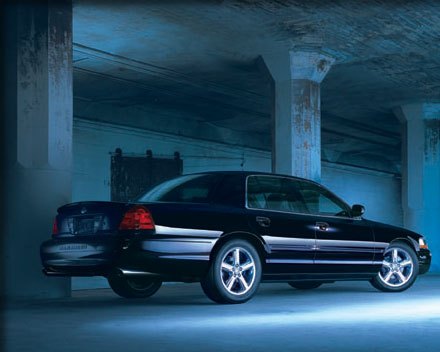


















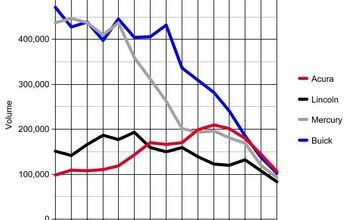
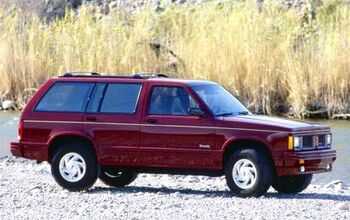
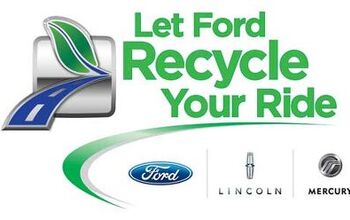



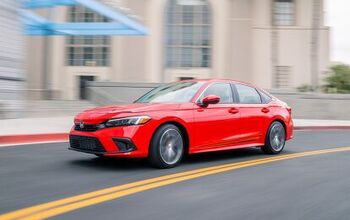


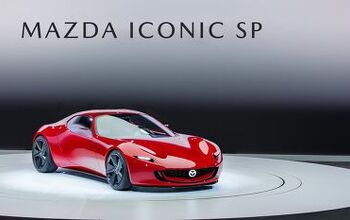





Comments
Join the conversation